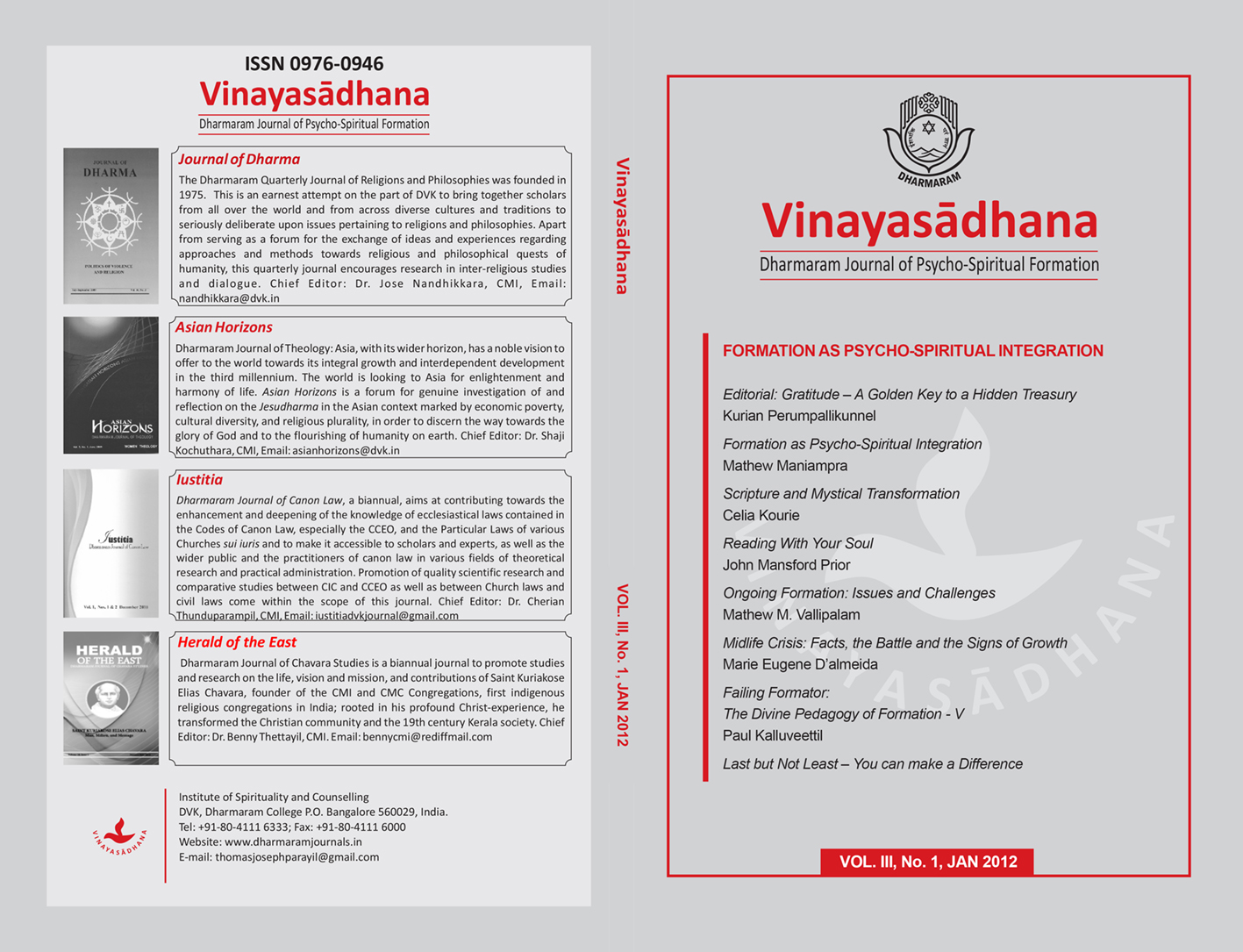Formation as Psycho-Spiritual Integration
Keywords:
Formation, Psycho-Spiritual Integration, psychological wellbeing, spiritual essence, emotional integrationAbstract
Psycho-spiritual integration is the blending of the psychological wellbeing and spiritual essence in an individual. The integrated person is one who is at peace with himself, his society, and his God because integration implies that a person’s feelings, perceptions, thoughts, and body processes are part of a larger whole. Formation involves the whole person. In the synthesizing of every aspect of personality, emotional integration is a key element. Wholeness occurs when both psychological principles and spiritual principles unite. Psycho-spiritual integration begins to happen naturally when the personality and soul meet, each honoring the other for its natural way of being. Integration refers to a dynamic interplay of experiences that finally lead to mature relationships and behaviors. It encompasses both the psychological and spiritual dimensions of the human being, who finally learns to transcend himself as a loving response to God’s call.
References
Assagioli, R. (1971). Psychosynthesis. New York: Viking Press.
Benner, D. (1989). Toward a Psychology of Spirituality: Implications for Personality and Psychotherapy, Journal of Psychology and Christianity, 8 (1), 19-30.
Benner, D. (1998). Care of Souls: Revisioning Christian Nuture and Counsel: Grand Rapids, MI: Baker Book House.
Benner, D. (2002a). Nurturing Spiritual Growth, Journal of Psychology and Theology, 30 (4), 335-361.
Benner, D. (2002b). Sacred Companions: The Gift of Spiritual Friendship and Direction. Downers Grove, IL: Inter-Varsity Press.
Congregation for Institutes of Consecrated Life and Societies of Apostolic Life (1991). Potissimum Institutioni: Directives on Formation in Religious Life. Rome: Roma Ediurcia.
D’ Almeida, M. E. (2007). Dynamics of an Integrated Formation Model, Sanyas Journal of Consecrated Life, 2 (2): 155-167.
Erikson, E. (1959). Identity and Life Cycle, Psychological Issues, 1 (1), 74-76.
Howard, P. (2006). A Psycho-spiritual Model of Spiritual Formation: A Review of David Benner’s Contributions.” CEJ: Series.3. (2) 230-239.
John Paul II (1996). Vita Consecrata. Bombay: Pauline Publications.
Jung, C. G. (1955). Modern Man in Search of a Soul. New York: Harcourt, Brace and World.
Jung, C. G. (1975). Letters 2, New Jersey: Princeton University Press.
Kelsey, M. T. ((1988). Christo-Psychology. New York: Cross Road Publishing.
Lonergan, B. (1972). Method in Theology, New York: Seabury Press.
May, W.E. (1977). New Catholic Encyclopedia, New York: McGraw Hill Publishing Company.
Sharf, R. S. (2004). Theories of Psychotherapy and Counseling. Belmont, CA: Brooks/Cole.
Tyrrell, B. J. (1975). Healing Through Enlightenment, New York: Seabury Press.
Tyrrell, B. J. (1982). Christotherapy 2nd. New York: Paulist Press.


